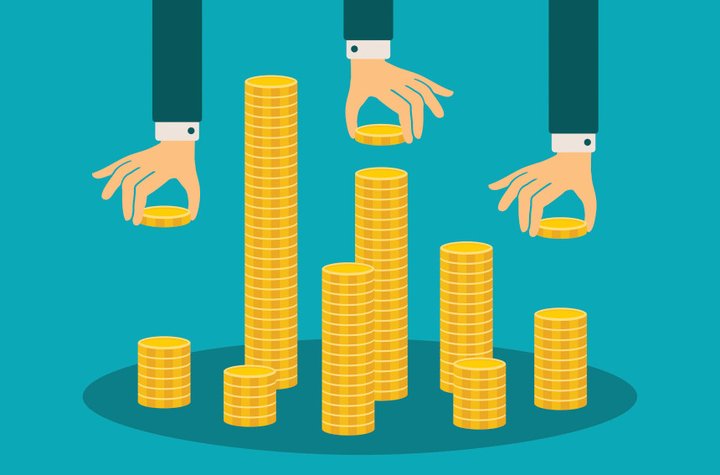
For Californians with consumers debt, banks and private collectors could garnish their stimulus checks. Image via iStock
###
Californians have begun to see money appear in their bank accounts: $1,200 for single people and an extra $500 for each kid. But for Californians with consumer debt, that money could just as quickly vanish.
The payments, part of the $2.2 trillion national coronavirus response package or CARES Act prohibits federal and state governments from intercepting the payments, except to collect child support debt. But the bill is notably silent on private debt collectors and banks, leaving people vulnerable to garnishments.
Consumer advocates say this defeats the purpose of cash relief meant to help the most financially unstable stay afloat. And while other states have stepped in to protect the stimulus checks from debt collectors, California has not.
“That’s not why they’re being issued, to settle old debt,” said Ted Mermin who leads the California Low-Income Consumer Coalition. “They’re being issued to put food on the table and keep the lights on.”
Consumer advocates want Gov. Gavin Newsom to put an immediate halt to most debt collection and new debt collection lawsuits. An executive order would protect the stimulus payments and “preserve the economic lives of millions of California residents,” they wrote.
Debt collectors say they won’t stand in the way. Cindy Yaklin, vice president of the California Association of Collectors, says her group is only opposed to a moratorium on all collection activities, which would stymie the industry.
The governor’s office did not respond to multiple questions about whether creditors should be allowed to take stimulus checks. In response to requests for comment, the governor’s office referred CalMatters to an executive order signed Thursday allowing stimulus checks for anyone late on child support payments to be sent to the custodial parent first before the government can apply the money to old child support debt.
Still, other elected officials are pushing for action. Attorneys general in 25 states, including California, and 14 U.S. senators led by California Sen. Kamala Harris sent letters urging the U.S. Treasury to designate the relief payments as exempt from garnishment.
“These emergency funds are meant to help our families and communities, not to line the pockets of debt collectors,” said California Attorney General Xavier Becerra in an email to CalMatters.
Hundreds of thousands potentially at risk
About one in four Californians have some debt in collections, according to an Urban Institute analysis of records from a major, unnamed credit bureau.
Banks are first in line to take the stimulus payment from people with negative balances in their account, though many major banks have vowed not to.
Next are private debt collectors who have won a debt collection lawsuit in court. With a court judgment, they can ask the county sheriff’s department to file a lien on a person’s house, garnish their wages or order a bank to freeze all non-exempt funds in a person’s bank account on a certain day.
Knowing that the stimulus checks have started to arrive, debt collectors may opt to levy bank accounts over the coming weeks, said Sharon Djemal, director of the Consumer Justice Practice at the East Bay Community Law Center.
Each year, approximately 110,000 bank levies are served in California, according to the centers estimate based on 2014-2016 county data.
The state could step in
Already several other states have shielded the stimulus checks from debt collection.
Last Monday, Massachusetts Attorney General Maura Healey issued guidance saying that the payments “are exempt from seizure of garnishment by creditors under Massachusetts law” that bars debt collectors from collecting public benefits. Attorneys general in Ohio and New York did the same.
While California does not have a similar law that could be applied to the stimulus payments, Mermin said that Becerra could threaten collectors on the grounds that seizing the payments is unfair or a violation of due process, as a West Virginia court ruled recently.
California’s Judicial Council could also exercise their emergency powers to ban the practice, Mermin said. A spokesperson said the Judicial Council and California’s Chief Justice Tani G. Cantil-Sakauye could not comment on the matter.
Newsom could follow the lead of the governors in Illinois and Washington, who temporarily suspended state laws allowing sheriffs to issue wage levy and bank garnishment last week.
At the very least, the governor could “issue an executive order defining the stimulus payment as an exempt government benefit” that cannot be levied, Mermin said.
A new state law, SB 616, protects the first $1,724 dollars in bank accounts from being garnished. It would shield at least some of the stimulus check from being scooped up by debt collectors — but won’t go into effect until Sept. 1. Theoretically, the Legislature could pass emergency legislation to move up that timeline. But that requires a two-thirds vote and the legislative session is largely on pause due to the pandemic.
What to do if this happens to you?
Djemal urged anyone who notices that money in their bank account has been frozen after receiving their stimulus check to immediately seek help. Account holders can file an exemption and argue the money is necessary for basic expenses.
Under a section of SB 616 that is already in effect, the money will be released back to the consumer if the debt collector doesn’t contest that claim.
Or try to stay one step ahead.
“We encourage anyone that does owe consumer debt, as soon as that money hits your bank account, please take it out,” said Jessica Bartholow, policy advocate at the Western Center on Law and Poverty.
###
CALmatters.org is a nonprofit, nonpartisan media venture explaining California policies and politics.
CLICK TO MANAGE